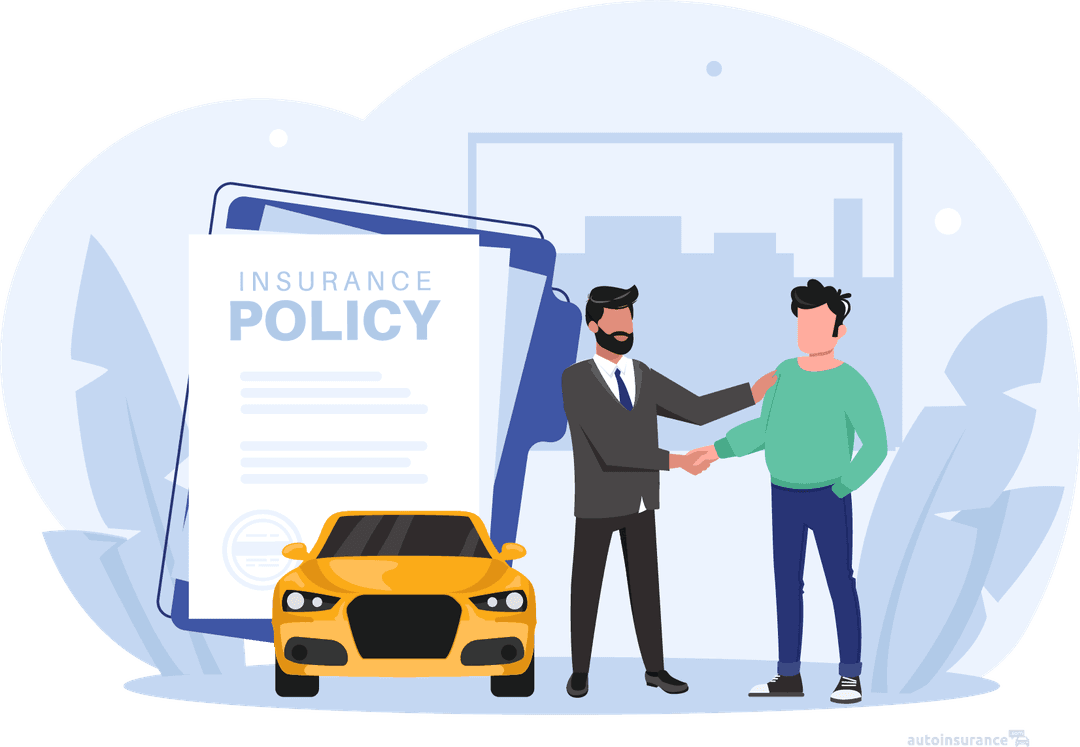

Can You Buy a Car Without Insurance?
Almost all states require auto insurance, but does the dealership check for proof?
Compare quotes from top providers

Auto insurance can be expensive, and nearly every state requires it, but can you buy a car without it ? The short answer is no – you’ll need insurance to legally drive your car off the lot.
However, the timeline and requirements can vary based on your situation. For straightforward scenarios, like buying a new car from a dealership, you’ll need to buy insurance before leaving the dealership. But what about less common situations, like purchasing a used car from a private seller or trading in a vehicle already on your policy? And what if you already have insurance – does it automatically cover your new car? Or what if you’re getting insurance for the first time?
We’re here to help you understand what’s required, no matter what your circumstance, so you can buy your car with confidence and drive away fully insured.
Can You Buy a Car Without Insurance?
While you can technically buy a car without insurance, you won’t be able to drive it off the lot, as it’s illegal to drive without insurance in all states, except New Hampshire. The dealership will require proof of auto insurance, whether it’s a new or existing policy, for you to legally drive the car you just purchased.

Additionally, if you’re leasing or financing the vehicle, the lender will also typically require comprehensive and collision coverage as part of the agreement.
In short, you’ll need insurance to drive the car off the lot — and don’t forget to have a valid driver’s license too!
Existing Auto Insurance
If you already have auto insurance, most insurers offer a grace period — usually up to 30 days — where your new or replacement vehicle is automatically covered under your existing policy. During this time, you’ll need to update your insurance provider with the new vehicle’s details and adjust your policy to keep your coverage accurate and active after the grace period ends.
Here’s how to ensure your vehicle is covered.
If you’re trading in a car:
- Call your insurance company to get insurance rate quotes for the car you want to trade in.
- Ask for the deadline for notifying your agent of the final purchase.
- Contact your insurance company at the dealership or after you purchase the car to update your policy.
If you’re adding a brand-new car to your policy:
- Call your provider within seven to 30 days of buying your new car to verify your coverage.
When you call the insurance company, you’ll need the year, make, and model of the car as well as the vehicle identification number (VIN). The insurance company won’t need to see any paperwork but may want to physically inspect the car for damage, especially if it is used. The insurance carrier will then forward proof of insurance to you or to the dealership directly.
New vs. Used Cars
Whether you buy a used or a new car, you’ll need proof of insurance in order to drive it off the lot. That’s even true if you buy from a private seller in order to satisfy state auto insurance requirements.
What Should I Buy First, a Car or Insurance?
We recommend buying auto insurance before you buy a new car to ensure you can legally drive it off the lot right after purchasing it.
However, many people aren’t sure exactly what car they will get, or know its VIN. If you’re uncertain about the car you’ll buy, you can still call your insurance company ahead of time to get an estimated quote based on the make(s) and model(s) you’re considering.
If you don’t have an existing auto insurance policy, call your insurance agent as you are nearing the end of the buying process and have them run the vehicle’s VIN. Most insurance companies can provide same-day policies, allowing you to get your paperwork that day. If you already have an existing policy, many insurers offer a grace period of up to 30 days during which your new vehicle is automatically covered under your existing policy. However it’s essential to confirm the specifics with your insurance provider.
Getting Insurance Through Your Dealership
Dealerships can’t sell auto insurance directly, but they may have a Finance and Insurance (F&I) department onsite to help you find same-day insurance through one of their partners.
In addition to assisting with insurance, dealerships often offer additional products and services, like extended warranties and gap insurance. However, when it comes to gap insurance, it’s usually cheaper to purchase it as an add-on through your own insurance provider as opposed to the dealership (or from another financial institution, like a credit union).
Even if you don’t plan on purchasing insurance through one of your dealership’s partners, getting a quote from them can be a useful point of comparison as you shop around for the best policy.
Don’t make a quick decision. Instead, do your research. Here are the basic pros and cons of buying insurance through one your dealership’s partners:
Pros:
Everything is handled in one place, so it’s convenient, saves time, and could get you a discount on the car itself.
Cons:
You may pay more in premiums. You’re restricted to the providers the dealership works with, which means you’ll miss out on comparing auto insurance quotes from multiple providers to find the best deal.
Information Your Insurance Agent Will Need
You can’t get auto insurance without providing your agent some information about your car. Different cars cost different amounts to insure based on their prices and safety ratings. To get auto insurance, your agent will ask for your vehicle’s:
- Identification number (VIN)
- Make, model, and year of the car
- Mileage from the odometer
They may also request the following information about you:
- Your estimated weekly mileage
- Driver information, like age, driver’s license number, and driving record
- Address where the car will be garaged
- Whether you own, lease, or finance the car
You’ll need to provide all of the requested information in order to buy the insurance and drive your car legally.

Test-Driving a Car Without Insurance
Do you need insurance to test-drive a car? For dealership test drives, the answer is no. Dealerships carry their own insurance, called garage liability insurance, which covers accidents or injuries during test drives. For private sellers, it’s important to confirm they have insurance that extends to test drives. However, it’s also wise to have your own auto insurance in this scenario. If an accident occurs, you could be held responsible for damages or injuries not covered under the seller’s policy.
TIP:
If you’re test-driving a car from a private seller, make them sign a statement that it’s insured and that you have permission to drive it under this policy.1
Is Minimum Coverage Enough?
Minimum coverage is often insufficient to cover the potential costs associated with serious accidents, such as bodily injuries, property damage, medical bills, lost income, and even lawsuits. While the right level of coverage depends on your personal circumstances, it’s generally wise to purchase more than the minimum coverage required by your state.
Experts often recommend carrying at least the following:
- Bodily injury liability: $100,000 per person/$300,000 per accident
- Property damage liability: $50,000 to $100,000
- Uninsured/underinsured motorist (UIM) with limits similar to your liability coverage
- Personal injury protection (PIP) or medical payments, which may or may not be required by your state
- Comprehensive and collision coverage, with a deductible you can afford
NOTE:
Full coverage, in comparison to minimum coverage, typically includes UIM, comprehensive, collision, and medical payments or PIP coverage.
Recap
Buying a car without insurance may be possible in some scenarios, but it’s not practical—or legal in most cases—to drive it without coverage. At a dealership, you’ll typically need proof of insurance before driving off the lot. Even in private sales, insurance is crucial to protect your new investment from accidents or damage.
If you already have an insurance policy, you likely have a grace period during which your new vehicle is automatically covered. This allows you time to add the car to your policy without losing coverage. To streamline the process, consider calling your insurance company before purchasing the car to obtain an estimated quote. You can then finalize the policy at the dealership or shortly after completing the purchase.
For most buyers, arranging auto insurance coverage before finalizing the purchase is the best approach. Not only does this streamline the process, but it also ensures compliance with your state’s insurance laws. If you’re exploring your options, check out our guides on the best car insurance companies and how to find affordable coverage. These resources can help you compare quotes, understand your coverage needs, and secure the right policy before you hit the road.
Citations
Do You Need Insurance to Test Drive a Car? American Family Insurance. (2022).
https://www.amfam.com/resources/articles/on-the-road/insurance-to-test-drive-car
